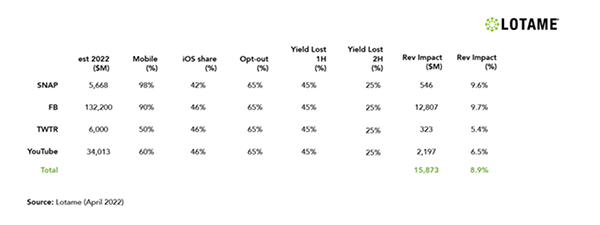 |
||||||||||
|
||||||||||
| French Sites Ordered to Sever Ties With Google Analytics |
 |
| The transfer of data between the US and EU is a hot GDPR violation topic that is only heating up. As complaints about data transfers across the pond are constantly being reported to the European Center for Digital Rights (NOYB), it's becoming evident that EU watchdogs are leaning more and more towards ruling out Google Analytics altogether. France is the latest member of the EU to join the cancel Google Analytics party after the Commission Nationale de l’informatique et des libertés (CNIL) ordered three French websites to stop using Google Analytics in the next 30 days, or they might face a fine of up to $20 million, or 4% of their annual turnover. We knew it would only be a matter of time before other European countries followed in line behind Austria, the first in the EU to place a ban on the use of Google Analytics — after finding it in breach of GDPR. |
| GDPR has made it nearly impossible to determine when you might be found in violation of the legislation, especially when it comes to transferring data between the US and EU. "About half the complaints target the use of Google Analytics, the other half target the use of Facebook Connect," said Gabriela Zanfir-Fortuna, VP for global privacy at the Future of Privacy Forum, a nonprofit organization that provides privacy protection solutions. GDPR and the Schrems II decision from July 2020 even ruffled Meta's feathers; and in response, they threatened to pull their platforms (Instagram, WhatsApp, and Facebook) from Europe this past February if the EU restricts the exchange of data between the US and EU. The exchange of data is a primary component of the social media conglomerate's advertising business, so findings like these are always the source of major headaches. For US publishers doing business on a global scale, it's time to button up and make sure how you're sharing data across the Atlantic has all of the necessary privacy protections in place. |
| OOH Ad Spend Gradually on the Rise |
 |
| Now that people are getting out of the house again after a two-year pandemic, publishers can expect to see new highs in Out of Home, which took a massive hit as ad spend decreased by about $2 billion in 2020. But now OOH ad revenue is beginning to trend up, up, up.
The Digital Out of Home DOOH industry is also doing well and is expected to hit its pre-pandemic high of $2.58 billion in ad spend by the end of 2022. |
| As people continue to move back outdoors and COVID becomes more normalized, we can only expect Out Of Home ad spend to continue to grow. Advertisers expect their DOOH budgets to increase overall OOH ad spend by 31.2% from last year into 2022. But for the OOH and DOOH to thrive, they need an engaged audience. Whether digitally or on the old-fashioned billboards, people's habits are returning to what they were pre-pandemic, which is contributing to this shift in ad spend. |
| Apple ATT Continues Fumbling the Bag for Big Tech Platforms |
 |
| Although it's now been in play for close to a year, publishers still haven't really figured out their way around Apple's App Tracking Transparency (ATT), which has limited their ability to track and measure user's behaviors across apps and mobile sites. And with the Big G making it clear that they're also limiting signals on Android, publishers and marketers are scrambling to effectively target, track and measure their campaigns. This has led to huge revenue losses for mobile publishers, even for mega-sized platforms like Meta and YouTube. (Just imagine what that means for everyone else.) Lotame estimates that Apple's IDFA changes will cost these companies close to $16 billion. 
|
| "As the year progresses, the impact of this particular change will be harder and harder to isolate and will start to get stirred in with other changes that might occur around accessibility to formerly more open media systems," said Mike Woosley, Lotame's chief operating officer. Will 2022 or 2023 be the hardest years in ad ops ever? Lotame's predictions are definitely concerning. Fortunately, some publishers are already ahead of the game with some testing methods of managing consent while others are contemplating how to make up for data loss, specifically on FB. We'll be talking more about the future of monetizing mobile at our upcoming Ops conference on June 7. |
 |
||||||||
|
||||||||
 |
||||||||
|
||||||||
 |
||||||||
|






